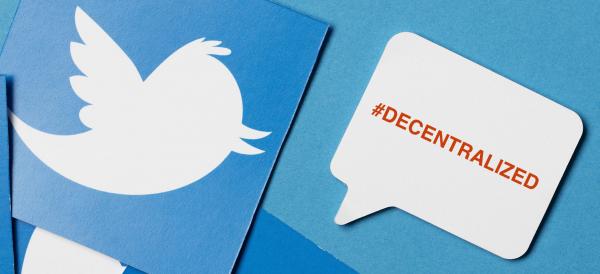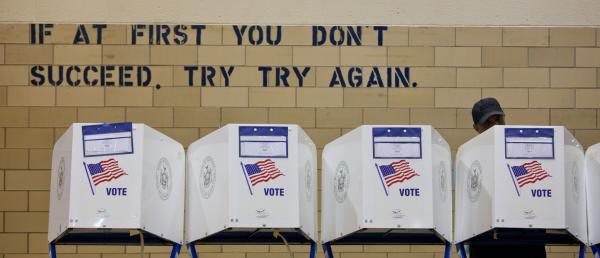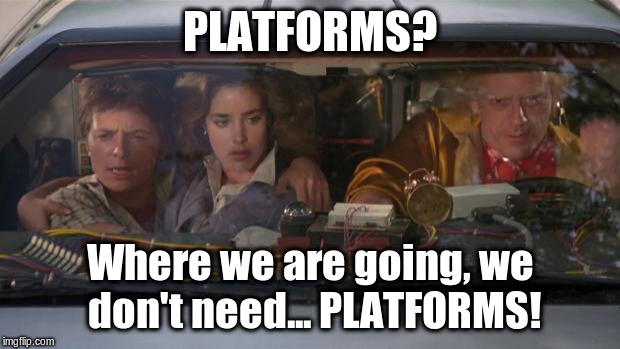From decentralized Twitter to basic truths
Like, you know, “who is REALLY in charge?”

Daniel Jeffries published today a fascinating, wide-range proposal on how to decentralize Twitter, which is valid for every organization, not just social media or other digital platforms. Some of the concepts in the proposal seem perfect to me, others raise bigger concerns than the problems they are meant to solve. Both types of concepts are summarized below.
Blockchains and Cryptocurrencies?
- Blockchains/cryptocurrencies don’t scale.
- They’re inefficient and energetically wasteful.
- They’re hard to upgrade and change.
Thanks Jeffries. This is never repeated often enough.
People want simplicity in their lives, and that is dangerous

Why it is hard to decentralize Twitter (or any other social network of today?) Because “Centralization works… More often than not, centralized systems are easier to design, highly resilient, easier to police and simpler to govern.”
This demand of simplicity is dangerous, but the opposite solution, that is truly *Decentralized Autonomous Organizations" (DAOs) are not feasible at large enough scales. Because:
“Nobody is going to vote on everything. Nor should they. We don’t want everyone in the company deciding marketing strategy and what projects to build. And that’s just the big things. Nobody is going to vote on ordering paperclips. What you end up with is voting fatigue.”
Technology is the last of our problems
“When thinking about decentralization it’s tempting to think about the technology first but there are much bigger problems if we want to run and monetize a decentralized platform… First we have to think about governance and then economics.”
“To truly build… a decentralized ecosystem of any kind, it will take a complete and fundamental rethinking of everything from governance, to voting, to identity, to incentives, to the very company structure itself… you’ll have to touch every aspect of what makes an economy.”
Me: the only thing I see wrong here is an inversion of goals and means. When thinking to any technology, it makes infinitely more sense to go, in this order:
“today’s governance and economy of society have… serious problems, what is the best way to fix them? And once we know that, does it depend on technology? And if the answer is yes, what is the best technology for this task?"
Rather than “I just love decentralization (or anything else), how can I use more of it? Hey, let’s try it with the economy, or politics”.
Nothing must be Too Big To Fail
Building on the concepts above, and many others, Jeffries goes on to propose, to replace Twitter and similar platforms, “a hybrid company/DAO structure that could manage a wildly disparate decentralized ecosystem with ease”. The starting point of the proposal is that “A truly robust system would have a way to rip an untrusted entity out of the system for their abysmal failure”.
“Instead of a single company to manage everything, you charter a minimum of three identical companies, each governing a smaller, distinct part of the ecosystem.”
Each company, that is, would have a separate set of customers or users, which would be reassigned every few years, to be sure that no company becomes more “necessary” than the others, and they are actually interchangeable.
This would also be good for innovation, because “few companies manage to survive the death of their top product and pivot to something new.” But above all, there would be a protocol to “dissolve any of the companies that fail to protect their charges either through data leaks, software security and gross incompetence”.
ME: The “dissolvement protocol” part is essential. No question about that. Not just for digital platforms. I already wrote that EVERY organization should know from day one how to DIE, and be BUILT for it. Apart from that, a big obstacle here may be… sovereignty. Even assuming complete interoperability between all companies, should they be limited to serve only citizens of one state? Especially considering the final question:
Who actually rules, eventually?
Once you have build this decentralized replacement to Twitter, how do you unmask, and block, someone doing “something truly evil on the network”? For example, how do you decrypt the messages of alleged terrorists, to see what they were up to? Especially in an age when soldiers, police, companies and teenagers all use the same encryption systems?
Jeffries proposes a system in there is only one “universal decryption key”, that can be used only once, and then replaced. And that single-use key could be unlocked only if two thirds of all the managers of both the companies described above, and of their user communities, vote to do it.
Such a procedure, says Jeffries, “builds governance into all levels of the platform from top to bottom and balances the needs to the many against the desires of the few, while still safeguarding the individual rights of the vast majority of people, rather than crippling the system for everyone to catch a few bad actors”.
The main little problem of this scheme is that basically replaces the judiciary arm of all the governments it comes into contact with. A judge may have the strongest, 100% legal reasons of the world to request decryption of someone’s messages, but if the managers of some companies and communities disagree, she could just go fishing. Even funnier, the answer would unavoidably depend on what that set of managers thinks, as a whole, of the current government, not the rule of law. Community manager positions would become a primary target of whoever wants to mess with that. This, if the whole “ecosystem” of interchangeable companies were confined to a single state. Try to think of community managers in Russia or Algeria deciding what their should do with a request from an american judge. Or viceversa, of course. Good luck with that.

Me, I am even more convinced than before that the solution to this problem is to not put extra platforms with such uncontrollable powers of this kind between citizens and their governments and judges. See this talk and proposal of mine to know what I mean, and let me know your opinion in the comments!
Who writes this, why, and how to help
I am Marco Fioretti, tech writer and aspiring polymath doing human-digital research and popularization.
I do it because YOUR civil rights and the quality of YOUR life depend every year more on how software is used AROUND you.
To this end, I have already shared more than a million words on this blog, without any paywall or user tracking, and am sharing the next million through a newsletter, also without any paywall.
The more direct support I get, the more I can continue to inform for free parents, teachers, decision makers, and everybody else who should know more stuff like this. You can support me with paid subscriptions to my newsletter, donations via PayPal (mfioretti@nexaima.net) or LiberaPay, or in any of the other ways listed here.THANKS for your support!